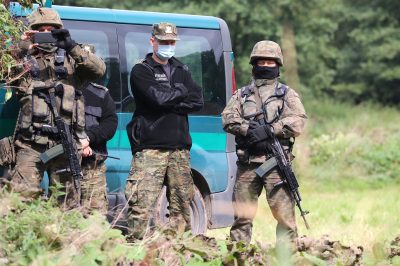
The European Court of Human Rights has communicated to the Polish Government another case of the unreasonable placement of foreign nationals in a guarded immigration centre.
The case concerns a family from Tajikistan (parents with two infants) who have made multiple attempts to apply for international protection as victims of persecution at the Medyka border crossing station. All their attempts were prevented by officers of the Polish Border Guard. Ultimately, their application was accepted for consideration in October 2017, after more than ten unsuccessful bids. Later on, the entire family was detained at the Guarded Centre for Foreigners in Przemyśl.
Deteriorating mental condition
While in immigration detention, the mother was diagnosed with a psychological condition resulting from the violence she had been subject to in the country of origin and the placement at a closed facility in Poland. The placement at the centre had also a negative impact on the condition of the children. However, neither the Border Guard nor courts considered the medical documentation presented by the woman. At first, the courts did not appoint an expert who would assess how detention impacted on the woman’s health.
After about 10 months, she attempted suicide, which led to her transfer to a psychiatric hospital. Even then, the Border Guard once again asked a court for an extension of the woman’s detention in a guarded centre.
Different ruling
Finally, the District Court in Przemyśl decided to examine the woman’s medical and psychological documentation and ordered the release of the family from the immigration detention centre. In these proceedings, she was represented pro bono by Mr Michał Jabłoński, an attorney with Dentons Europe Dąbrowski i Wspólnicy sp. k.
Victims of violence may not be detained
“This is yet another case concerning immigration detention of foreigners affected by violence in their country of origin, whose detention resulted in problems with health. The law is clear: victims of violence may not be detained at a guarded centre”, explains Jacek Białas, HFHR attorney representing the family before the Strasbourg Court. “Authorities are obliged to establish if there are any counterindications to placing such persons in detention, but our experience shows that immigration bodies have been continuously failing to adhere to this obligation. Also, in the case of this particular family, authorities disregarded the best interests of the children. We hope that other cases of this kind, which are likely to appear before the ECtHR, will result in the fair and lawful treatment of foreigners seeking protection in Poland”, Mr Białas adds.
The communication of the case M.Z. and Others v. Poland (application no. 79752/16) can be accessed here.


